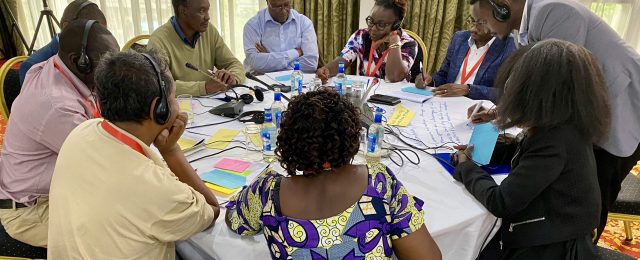Farmers at WBA Farmer Roundtables 2019 emphasise social inclusion as priority for food system transformation

It is one of the most pressing questions of our time: how to feed a growing population without depleting the planet’s resources? Scientists tell us it’s possible, but it will require no less than a ‘food system transformation’; a shift towards more nutritious diets and methods of sustainable production whilst ensuring the livelihoods of farmers are prosperous. In the last year we have seen a proliferation of major scientific and economic reports calling for urgent action. They include the perspective of civil society, scientists, governments and business leaders, yet we are still to hear the voices of farmer communities on this issue.
In November 2019 the World Benchmarking Alliance hosted two farmer roundtables in Kathmandu and Nairobi to ask: What does ‘food system transformation’ mean to you and what do you need from companies to meet the challenge? In total, 49 farmers from 14 countries across South East Asia and Eastern & Southern Africa gave their perspective, and an additional number of representatives from companies, SMEs, government and civil society joined the discussion on the second day of each roundtable. For the Food & Agriculture benchmark, including the farmers’ voice in the development of the benchmark and its methodology is essential. It is the intention of the World Benchmarking Alliance to continue a series of roundtables throughout the development of the benchmark, and to extend this farmer roundtable practice to other regions.
Where most reports on food system transformation concentrate on the nutritional and environmental dimension of food system transformation, participants of the farmer roundtables highlighted that the social-economic dimension is equally important. Respect for farmers, seeing them as partners in the value chain and supporting them to make a change towards circular and climate smart forms of agriculture are critical to achieving the goals of food system transformation.
This report summarises the main themes and insights discussed during the roundtables. In order to reflect the voices of farmers as directly as possible, the transcript of the original discussion points made during each session is available to view in this [PDF 0] : Annex.
Read the report